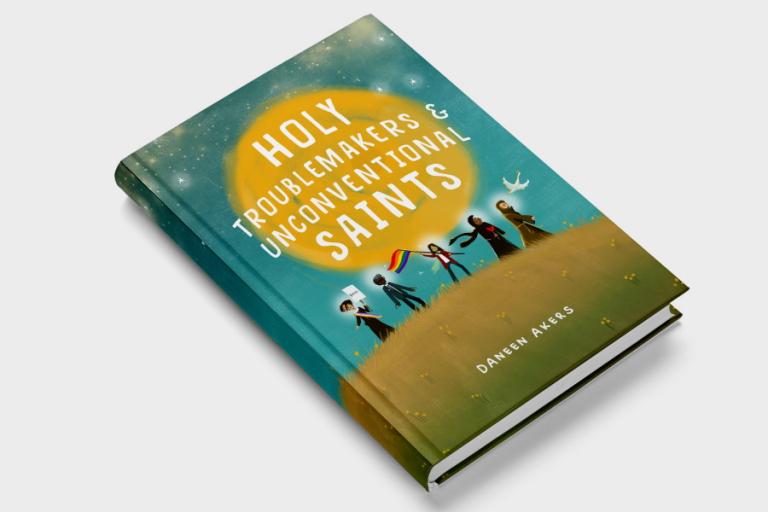
I had an interesting conversation in the comments of another post, and I thought it worth sharing and expanding.
The commenter (of whose own beliefs I am unsure) noted that while I claim certain theological beliefs from the Eastern Orthodox tradition, such as their understanding of the atonement, I nonetheless reject other beliefs they hold, such as their non-affirming stance toward LGBTQ people. According to the commenter, this “picking and choosing” is “typical—and pathetic.”
What do you think? Is there a problem with picking and choosing beliefs from different traditions?
On the one hand, we might view this as the height of Western individualization, and something the Eastern traditions would frown upon. And we might be right. But at the same time, I would also contend that such individualized selections are inevitable. Everyone picks and chooses their beliefs to one extent or another.
Even if I were to officially join the Orthodox Church, and to submit my beliefs wholly to their teaching, that would still be an individualized choice. My decision to become Orthodox would be based on my picking their tradition out of all the other faith traditions on the planet. And even if I had been born into the Orthodox church and had never explored other traditions, I would still have had to make the choice to stay.
Given that such individualized choice is impossible to avoid, it seems to me best to extend such choice to every specific area of belief, rather than to any one larger system of belief. Given the tremendous diversity of belief systems in this world, the idea that any one of them has managed to get everything perfectly correct seems to me absurd. And if none of them has it entirely right, then chances are pretty good that none of them has it entirely wrong either. We have something to learn from everyone.
So where does that leave us? Is our own intellect to be the ultimate determiner of all our beliefs?
Maybe. God gave us intellect for a reason, and I think we’re expected to use it. We’re also all accountable to our own consciences, and in the words of Martin Luther, “to go against conscience is neither right nor safe.”
But the thing is, choosing to learn from as many traditions as possible is really, in a sense, the opposite of individualization. Rather than limiting ourselves to an individual tradition, we have the option to become students of the global community. We’re not saying that our own intellect is supreme; we’re saying that the shared intellect of the world’s greatest thinkers is better than the best intellect from any one tradition alone. And the individual “picking and choosing” that we must inevitably come to will then be informed by the broadest learning possible.
Furthermore, none of this precludes the idea of grounding ourselves in a specific tradition. It’s just that our chosen tradition will be more of a guide than a warden.
For myself, I am a Christian, and the primary teachings of Christianity form the core of my belief. But since, as a Christian, I believe that “Christ is all, and in all” (Colossians 3:11), I believe that his truth permeates all of creation and every individual. Therefore, no religion is entirely devoid of God’s truth, so we should be seeking to learn from all of them, and even willing to correct our own beliefs as necessary. We Christians do not have a monopoly on Christ’s truth.
Going a step further, I have chosen to ground myself in the Anabaptist tradition within Christianity. This gives me a closer community of those whose beliefs are most similar to my own. But again, it need not restrict my beliefs to those officially espoused by this tradition. While I love Anabaptism as a whole, it still contains elements that I feel compelled to push back against. And I find tremendous value in nearly every branch of the church.
At the same time, it’s imperative to maintain humility about our beliefs, whether we pick and choose every detail or sign off wholesale on a broader tradition.
My commenter asked me, “So what makes your opinion any better than theirs?”
Nothing. I don’t think that my opinion is better than others; it’s just the opinion that I think is true. And what else can I do but follow what I believe to be true? But that doesn’t mean I think any less of those beliefs with which I disagree (assuming, of course, that those beliefs are not harming anyone).
I’ve come to my beliefs through my studies and experiences in life thus far. And I’m grateful to all those who have gone before and shared their own beliefs so that I may evaluate them and decide for myself which parts I believe and which parts I do not. Even those with whom I disagree have been a benefit to me. Therefore, I too share the beliefs to which I have come in the hope that my thoughts may be helpful to others.
But I would not ever want to impose my beliefs on others as the absolute truth they must follow. You, and every other reader of mine, must evaluate what I write, incorporate what you agree with, and reject what you do not.
I’m not going to try to convince you to believe anything you don’t want to believe.












